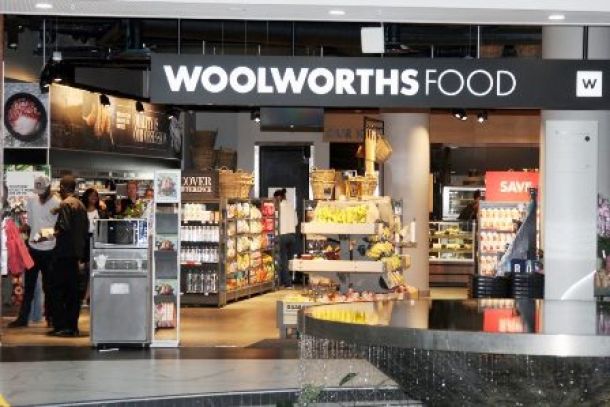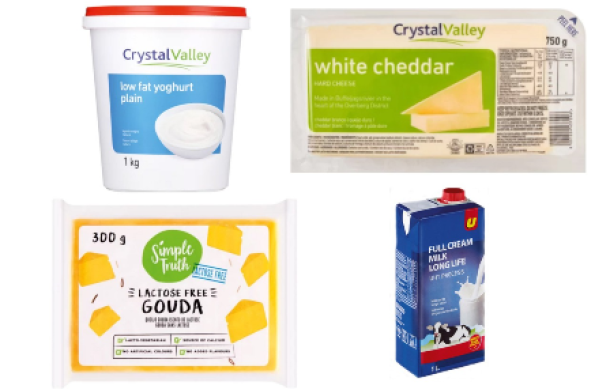Pick n Pay : How it all began - 50 years later we’re a little older and a little wiser
In his own words, “10% capital and 90% guts” is what it took for Raymond Ackerman to start Pick and Pay on this day in 1967. 50 years later we’re a little older, a little wiser and still doing what we do best. Serving you, South Africa. With our hearts we create a great place to be. With our minds we create an excellent place to shop.
He was at low ebb in his career, having just lost his job at Checkers, and had returned to Cape Town from his Johannesburg base.
Once back in the Mother City, he started negotiations for four small shops – called Pick n Pay – owned by businessman Jack Goldin. Lack of funds did not faze Ackerman, although he only managed to raise R100 000 of the estimated R620 000 purchase price.
On the advice of his brother-in-law and a long-time friend, backing was sought by canvassing 25 colleagues in Johannesburg and another 25 in Cape Town. The deal was signed after an historic all-night bargaining session, which saw Ackerman acquiring the business for R620 000 – R35 000 more than his brother-in-law thought wise.
Even a visionary retailer such as Ackerman might have found it difficult to believe that some 43 years later the chain of four small stores with a staff complement of around 250 people would become a retailing giant.
In its first trading year Pick n Pay achieved a profit of R310 000 on a turnover of R5-million. Turnover subsequently climbed to R10-million, and doubled the following year.
Shortly afterwards, Checkers and OK Bazaars took on Pick n Pay and starting a price war in the Cape. At the height of the battle, Ackerman received a letter from a Port Elizabeth businessman offering to sell him his small supermarket.
Heeding the advice of a friend who’d told him to treat the Checkers/OK attack as if it were a military campaign, Ackerman immediately left for Port Elizabeth where he bought the shop the same day. Two months later, a fully renovated Pick n Pay-branded store opened its doors for business.
Says Ackerman: “It saved us because it meant that both chains had to fight in Cape Town and Port Elizabeth. Their ultimate withdrawal was a real highlight.”
And so the scene was set for Pick n Pay to change the face of South African food retailing. Trading was tough back then, with the industry characterised by ruthless cartels. But challenge is what Ackerman thrived on. Not surprising, given his favourite saying is, “winning isn't everything – it's the only thing”!
Determined to fight for the consumers’ right to a fair deal, Ackerman started cutting prices on basic items. Said Ackerman: “We established ourselves in the Cape by cutting the price of cigarettes and chickens. We wanted to offer consumers basic commodities at low prices, but everyone said the government wouldn’t let us – especially when it came to cigarettes”. Ackerman put the Company’s entire capital into buying forward on cigarettes and then stayed awake for two nights guarding the warehouse in which they were stored.
“I had to,” he explains. “The insurance companies refused to cover me.” Insurance cover for the warehouse stock was eventually obtained by persuading Lloyds of London that his warehouse stock was at least as valuable as certain “personal assets” owned by Marilyn Monroe and Betty Grable – both of whom had been insured by Lloyds.
In 1969, only two years after the Company was founded, a leading financial publication pronounced Pick n Pay “the star of the Cape supermarket scene”, and when the Company was listed as one of the “Sunday Times Top 100” companies, it became clear tha t Pick n Pay had truly come of age.
In 1973 Raymond Ackerman announced Pick n Pay greatest ever diversification – the Company’s entry into the field of Hypermarkets.
The first Hypermarket opened in 1975 in Boksburg, bringing the concept of “one-stop-shopping” to the South African consumer for the first time.
The opening beat all previous Pick n Pay trading records with an estimated R350 000 being taken in the first two days alone. Today there are 20 Hypermarkets nationwide.
The year 1984 was particularly significant for the Company, as it was marked by the acquisition of a 50% interest in Boardmans, a chain of Cape-based homeware stores. The chain was to become wholly owned by Pick n Pay two years later.
Later that year, the Company’s contribution to community won international recognition when the Marketing Institute of America honoured Pick n Pay with a social responsibility award.
In the same year, Hugh Herman was appointed as joint Managing Director, along with Raymond Ackerman.
Despite political turmoil and economic downturn, Pick n Pay continued to forge ahead. In 1983 turnover for the year exceeded R1-billion for the first time, and three years later the enormous expansion of the Company was highlighted when turnover for 1986 doubled to R2-billion.
However, it was not all smooth sailing, as Pick n Pay was forced to abandon its expansion into Australia due to union opposition. Pick n Pay was on the verge of building a second Hypermarket in Melbourne when the plumbers union rallied to bar them from the site. The Company eventually turned its back on one of its prime businesses, the superb Brisbane store. Ironically, the store is still called Pick n Pay, and was subsequently sold to the original partner.
That year also saw the opening of the Group’s 100th store at Highgate. This coincided with a vigorous programme of new store openings throughout the country. The stage was set for the Company's entry into the ‘90s – a decade that was marked by significant political and social change, mirrored by equally important changes within the company.
Download related documents
|
(770 KB) |
News Category
- International retailers
- On the move
- Awards and achievements
- Legislation
- Wine and liquor
- Africa
- Going green
- Supplier news
- Research tools
- Retailer trading results
- Supply chain
- Innovation and technology
- Economic factors
- Crime and security
- Store Openings
- Marketing and Promotions
- Social Responsibility
- Brand Press Office
Related Articles

Woolworths snaps up four awards at the annual P...

Shoprite, Usave and Checkers private label prod...

Shoprite’s Xtra Savings shines at 2024 Internat...

Shoprite’s Xtra Savings shines at 2024 Internat...


